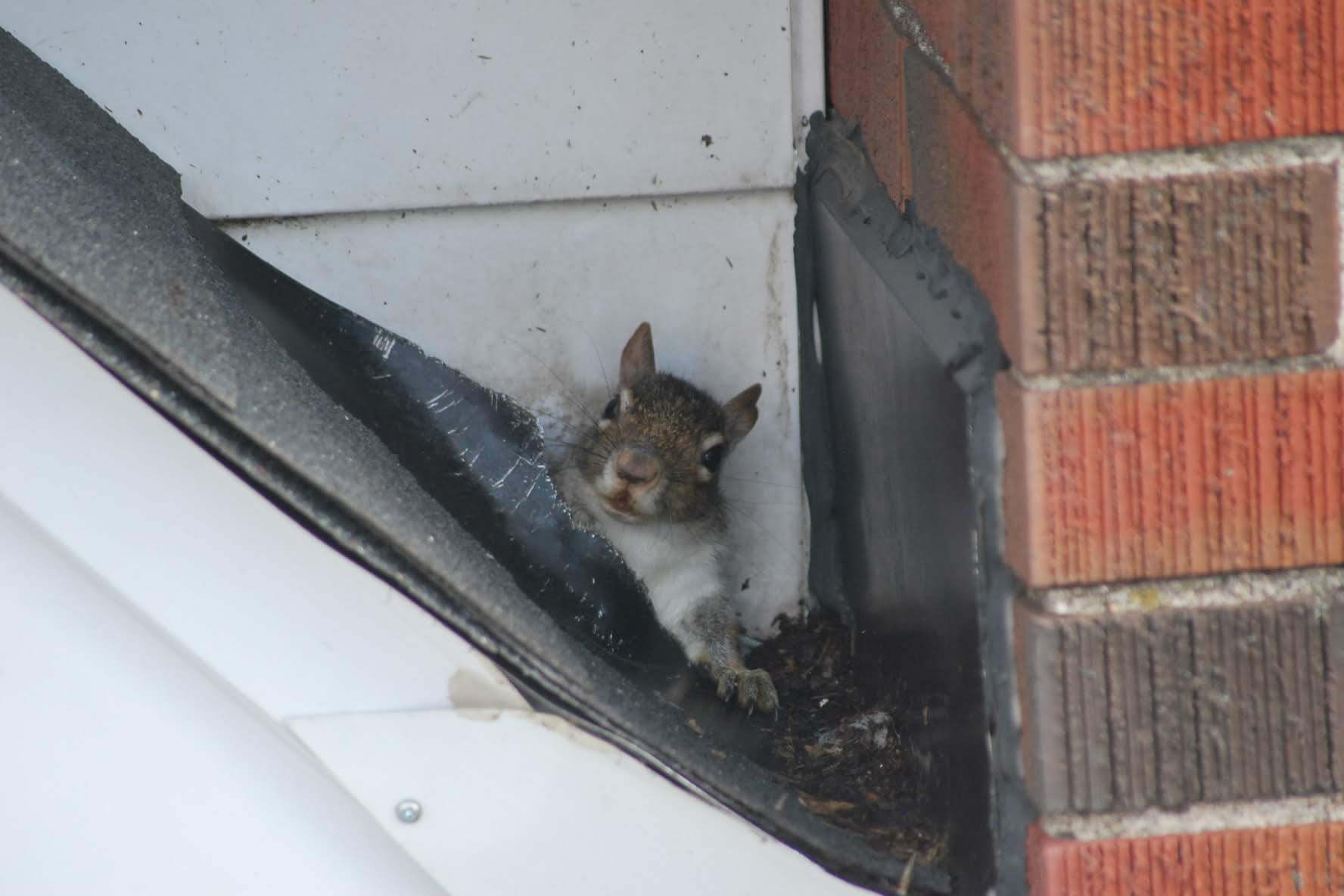Cats say “meow” and dogs say “woof” — or at least this is what you teach your infant. But what does it mean when a squirrel barks? Squirrels aren’t known to frequent the pages of board books with their unique and instantly recognizable animal sounds, but they do have a few interesting sounds of their own. Learn what it means if you hear a squirrel “barking” and understand the meaning of other noises you may hear a squirrel make and whether you need to call squirrel control in Madison.
What Noises Do Squirrels Make?
If you hear a squirrel making noise, it’s likely because the squirrel is sending off a type of alarm. Read through the following squirrel noises below to determine whether that fluffy new friend you found near your home is just being adorable — or if it is trying to tell you that you’re a threat to its safety.
Chattering
Squirrels chatter for different reasons depending on their age and the situation at hand. Adult squirrels may chatter their teeth at a predator as an act of aggression, while baby squirrels chatter their teeth when trying to get food. Baby squirrels may also chirp, use a “muk-muk” sound, or even cry for their mothers like human babies.
If a squirrel chatters at you, it’s likely that it considers you to be a threat. Don’t try to get closer to the squirrel or chase it away: You’ll just scare it. If you see one chattering inside your house, it will probably retreat further inward.
Moaning
When a squirrel moans, it’s feeling worried. It may think (or know) that there is a predator nearby, but it doesn’t know exactly where this potential threat is. A squirrel may moan and flick its tail in your direction, or it may just flick its tail, to indicate that it may think you are a threat. It may also just be curious as to what you are and what you’re doing near its home. This can be a problem, of course, if you find one living in your house!
Barking
If a squirrel barks at you, this isn’t great news. A squirrel can make a barking noise — if you’ve never heard it, it does resemble a dog bark with a little bit of a cat’s hiss thrown in — when it perceives another animal or a human to be a threat to its nearby nest or home. This barking squirrel likely won’t do anything about your presence as it knows that it’s much too small to attack you and cause any real damage, but it’s best not to provoke it further.
Other common specimens such as the Eastern Gray Squirrel make a wide variety of noises like buzzes and moans in addition to chattering and barking. These unique sounds may signify that the squirrel is looking for a mate or sending off an alarm because they’ve seen a predator.
What Do I Do if I Hear a Squirrel Barking Nearby?
Do not attempt to catch or trap the squirrel yourself. Even if it’s cute, it’s not a pet! Make sure your kids are aware of this, too: A squirrel can give you a nasty bite if it feels threatened. If you hear a squirrel barking, the best course of action is to simply leave it alone. If you’re concerned about a squirrel (or several squirrels) living in your home, call us for a consultation before you try to remove them yourself.
How Can We Help?
Squirrels may look innocent, but they can damage homes by building nests and chewing through your walls. Also, like rats, squirrels can mistakenly gnaw through your house’s electrical wiring, which is a major fire hazard. Keep your house free and clear of squirrels and other pests by contacting Skedaddle Humane Wildlife Control in Madison today!




